Electronic Health Record (EHR) software has become a crucial tool for small clinics, enabling them to improve patient care, streamline operations, and enhance overall efficiency. For small practices, the right EHR system can simplify administrative tasks, manage patient records securely, and offer features like scheduling, billing, and telehealth services. By adopting an EHR system, small clinics can reduce paperwork, increase accuracy, and offer a better patient experience. Discover the best EHR software options for small clinics to improve patient care and streamline operations.
Benefits of EHR Software for Small Clinics
- Improved Patient Care: Access to real-time, accurate patient data allows for informed decision-making.
- Operational Efficiency: Automation of tasks such as scheduling, billing, and prescriptions reduces the burden on staff.
- Regulatory Compliance: Ensures compliance with healthcare regulations, including HIPAA, for secure data handling.
- Data Sharing: EHR systems make it easier to share information with other healthcare providers, improving continuity of care.
Criteria for Selecting the Right EHR Software
When selecting EHR software for a small clinic, consider the following key factors:
- Usability: Easy-to-use interface for both administrative staff and healthcare providers.
- Customization: Ability to customize the platform according to specific clinic needs.
- Interoperability: Compatibility with other systems, such as labs or pharmacies, to ensure smooth data exchange.
- Cost: Affordable pricing options tailored for small practices with transparent fee structures.
- Customer Support: Strong technical support to assist with onboarding and ongoing use.
- Security: Compliance with data security standards, such as HIPAA, to protect patient information.
- Scalability: Option to scale the system as the clinic grows.
Detailed Comparison of 10 EHR Software Solutions
1. Kareo Clinical
- Features: Comprehensive practice management, telemedicine, e-prescribing, customizable templates, billing integration.
- Pricing: Starts at $160 per month per provider.
- Pros: User-friendly interface, excellent telemedicine features, strong billing integration.
- Cons: Limited reporting features, can be costly for smaller practices.
- How It Helps: Streamlines scheduling, billing, and patient communication for enhanced operational efficiency.
2. Athenahealth
- Features: Revenue cycle management, patient engagement tools, mobile access, telehealth, medical billing.
- Pricing: Custom pricing based on practice size.
- Pros: Comprehensive features, strong mobile capabilities, excellent support.
- Cons: Higher learning curve, pricing transparency issues.
- How It Helps: Offers a wide range of features, perfect for clinics seeking an all-in-one solution to improve patient care.
3. NextGen Healthcare
- Features: EHR, practice management, patient portal, e-prescribing, and population health management.
- Pricing: Starts at $299 per provider per month.
- Pros: Highly customizable, good for specialty practices, patient engagement tools.
- Cons: Complex setup, support can be slow.
- How It Helps: NextGen’s customization helps small practices tailor workflows for better care delivery.
4. DrChrono
- Features: EHR, practice management, medical billing, patient portal, mobile-friendly interface.
- Pricing: Starts at $199 per provider per month.
- Pros: Mobile-friendly, easy to use, strong billing features.
- Cons: Some advanced features require higher-tier plans.
- How It Helps: DrChrono’s mobile-friendly design and easy interface improve operational efficiency for on-the-go providers.
5. Practice Fusion
- Features: Cloud-based EHR, e-prescribing, charting, patient scheduling, billing integration.
- Pricing: Starts at $149 per provider per month.
- Pros: Affordable, intuitive interface, customizable workflows.
- Cons: Limited third-party integrations, basic reporting features.
- How It Helps: Simplifies administrative tasks while providing affordable access to essential EHR functions.
6. AdvancedMD
- Features: EHR, practice management, billing software, telemedicine, customizable templates, reporting tools.
- Pricing: Starts at $485 per provider per month (bundled with PM).
- Pros: Highly customizable, comprehensive feature set, excellent support.
- Cons: Expensive, requires a learning curve for setup.
- How It Helps: AdvancedMD is ideal for clinics seeking a highly customizable system to meet specific needs.
7. CareCloud
- Features: EHR, practice management, revenue cycle management, telehealth, customizable dashboards.
- Pricing: Custom pricing.
- Pros: Modern interface, scalable, strong practice management tools.
- Cons: Requires customization for optimal use, limited reporting.
- How It Helps: CareCloud offers scalability for growing practices, ensuring operational efficiency without compromising patient care.
8. CureMD
- Features: EHR, practice management, medical billing, patient portal, cloud-based.
- Pricing: Starts at $295 per provider per month.
- Pros: Strong integration features, user-friendly, good for small practices.
- Cons: Can become expensive with add-ons, some advanced features lack depth.
- How It Helps: Provides easy-to-use tools that improve clinical workflows and patient engagement.
9. Greenway Health
- Features: EHR, practice management, revenue cycle management, telehealth, population health.
- Pricing: Custom pricing.
- Pros: Good for specialty practices, excellent reporting features, strong customer support.
- Cons: Customization can be challenging, higher pricing tiers for advanced features.
- How It Helps: Greenway Health’s advanced reporting helps clinics manage patient data more effectively.
10. SimplePractice
- Features: Practice management, telehealth, billing, client portal, customizable templates.
- Pricing: Starts at $39 per month (for solo practitioners).
- Pros: Affordable, easy-to-use, great for small or solo practices.
- Cons: Limited advanced features, not as robust for larger clinics.
- How It Helps: Perfect for small practices or solo providers seeking simple and affordable EHR features.
Conclusion
Choosing the right EHR software for a small clinic depends on the specific needs of the practice, including budget, feature requirements, and scalability. Each of the solutions listed above offers a range of features that can significantly improve patient care and operational efficiency.
By selecting the right EHR software, small clinics can enhance the quality of care, streamline workflows, and improve patient satisfaction. Be sure to explore the trials or full versions of each software solution to find the one that best fits your clinic’s needs.
Affiliate Call-to-Action
Try one of these EHR solutions today to improve your clinic’s efficiency and patient care. Click on the affiliate links above to start a free trial or purchase a full version.
